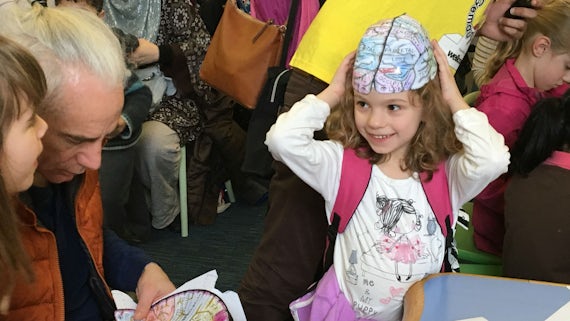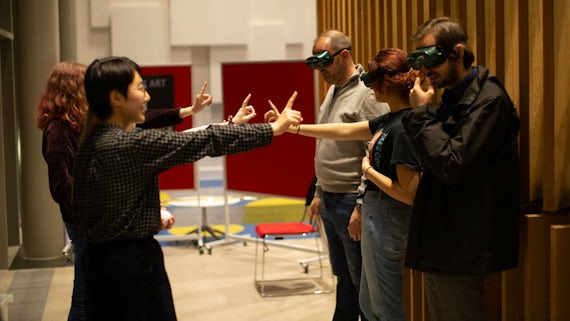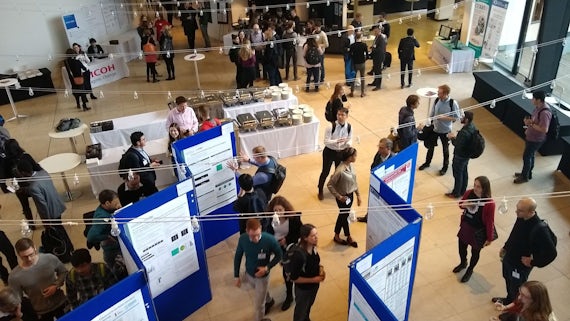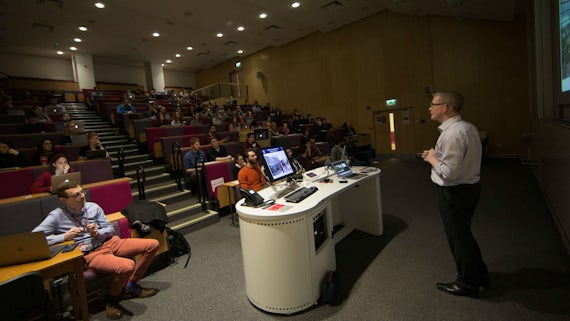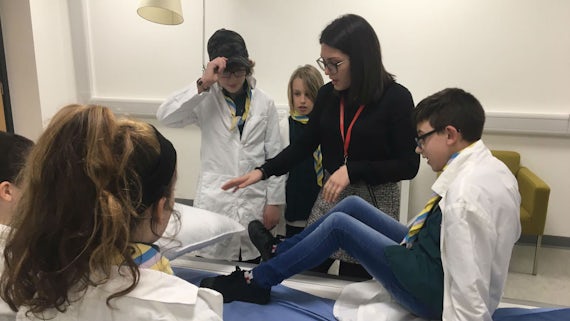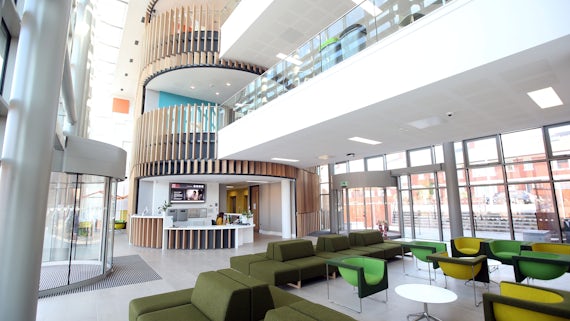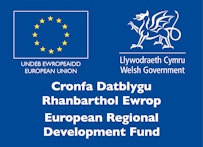Previous events
Our past events range from hosting an international neuroscience symposium to interactive festival experiences for members of the public.
Brain Games
The annual Cardiff University Brain Games form a set of fun and interactive activities offering children an introduction to psychology and neuroscience, as well as the chance to meet our scientists.
Each year the games are hosted at the National Museum Cardiff, highlighting a range of brain-related research taking place at Cardiff University in a fun and accessible way. From sensory illusions and inflatable brain domes to ‘DIY Brain Surgery’ workshops, this free annual event showcases the power and mystery of our most vital organ – the human brain!
Watch a video from Brain Games 2016.
Brain Night
This spectacular event featured games, performance, art and science, all inspired by the most complicated structure in the known universe – your brain.
Activities included brain games, a brain art exhibition, a neuroscience Q&A and an opportunity to meet the scientists.

MEG UK 2019
CUBRIC hosted the MEG UK 2019 conference at the Royal Welsh College of Music and Drama. The conference brought together the international MEG research community for three days of exciting talks and poster presentations, with keynote speeches from leaders in the field.

Cardiff University Neuroimaging Research Conference
The inaugural Cardiff University Neuroimaging Research Conference took place in early 2019. Over two days, researchers delivered a total of 94 two-minute talks about their work. This event showcased the breadth of neuroimaging research at Cardiff University and paved the way for new cross-topic and cross-departmental collaborations between colleagues.
Summer tours
Each summer, CUBRIC opens its doors for a number of tours showcasing our world-class facilities. We have been visited by Scouts groups, local primary and high schools, national and international summer schools, and other local groups.
A Spin Thro' the History of Restricted Diffusion MR
In January 2017, CUBRIC hosted an historic international conference entitled A Spin Thro’ The History of Restricted Diffusion MR. This meeting, organised by the National Microstructure Imaging Facility and supported by both the EPSRC and Siemens Healthineers, brought together 24 of the world’s leading innovators in diffusion magnetic resonance from over the last 50 years.
Notable speakers included John Tanner (who invented the pulsed-gradient spin echo method with Ed Stejskal), Denis Le Bihan (who invented diffusion MRI), Mike Moseley (who first reported the initial drop in diffusivity in ischaemia and also anisotropy in the mammalian brain), Peter Basser (who invented diffusion tensor imaging), and more. The conference also featured talks from contemporary innovators developing the latest methods in this field.

Einstein's Garden
In 2015, neuroscience researchers across the University collaborated to create Enhanced, a boundary-crossing experience that included live theatre, creative marketing and a soupçon of next-generation ethical dilemmas.
Visitors to the experience (based in the Green Man Festival's Einstein's Garden) were confronted with biological enhancements sold by the fictional-yet-believable 'Hybrid Industries', and took part in the discussions and demonstrations that suggested not all biological enhancements are necessarily desirable.
Enhanced was the result of a public engagement grant from the Wellcome Trust designed to bring scientists and creatives together to generate novel experiences that challenged the public's perceptions of science and society.
Laboratory of Neuroillusions
We held the steampunk-powered Laboratory of Neuroillusions at the 2014 Green Man Festival. The lab showcased the complexity of participants' brains with experiments, games and surprises galore.
2nd Cardiff International Symposium on MRS of GABA
This meeting, held on 12-13 September 2013, brought together scientists applying magnetic resonance spectroscopy (MRS) of gamma-amino butyric acid (GABA) to questions of clinical and basic neuroscience and those working on issues surrounding data acquisition and processing.
Consolidating smart-specialisation expertise in neuroimaging, the Centre is comparable in scale with facilities in North America, allowing research carried out in Wales to compete with the best in the world.
